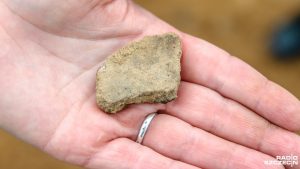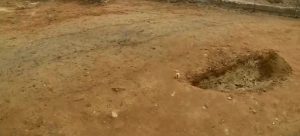Archaeologists managed to uncover prehistoric structures at the site of recently discovered circular enclosures, believed to be 7000-year-old Neolithic rondel, located in Nowe Objezierze, West Poland.

The structure has been observed last year and was reported to archaeologists by two separate sources. Prior to excavations the area has been investigated with use of a GPR. Under the topsoil researchers have uncovered features that might have been made 7000 years ago by people believed to be the first farmers which migrated to this part of Europe. The circular features which were visible in the crops were revealed to have been caused by the presence of concentric ditches with three or four openings, possibly serving as gates.

The structure measures about 120 metres in diameter and archaeologists managed to uncover only around 3 percent of its area. Such structures, known as “rondels” are known mostly from Czech Republic, Germany, and from the area of Poland only a handful have been identified so far. The artefacts discovered in the trench by archaeologists are believed to date roughly to 5000 BC. Researchers have collected pottery fragments for further analysis.

(after Radio Szczecin, Olaf Nowicki, TVN24 & TVN24 Szczecin)